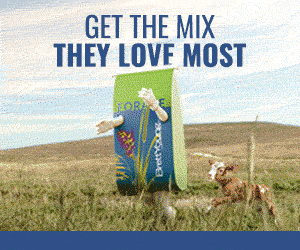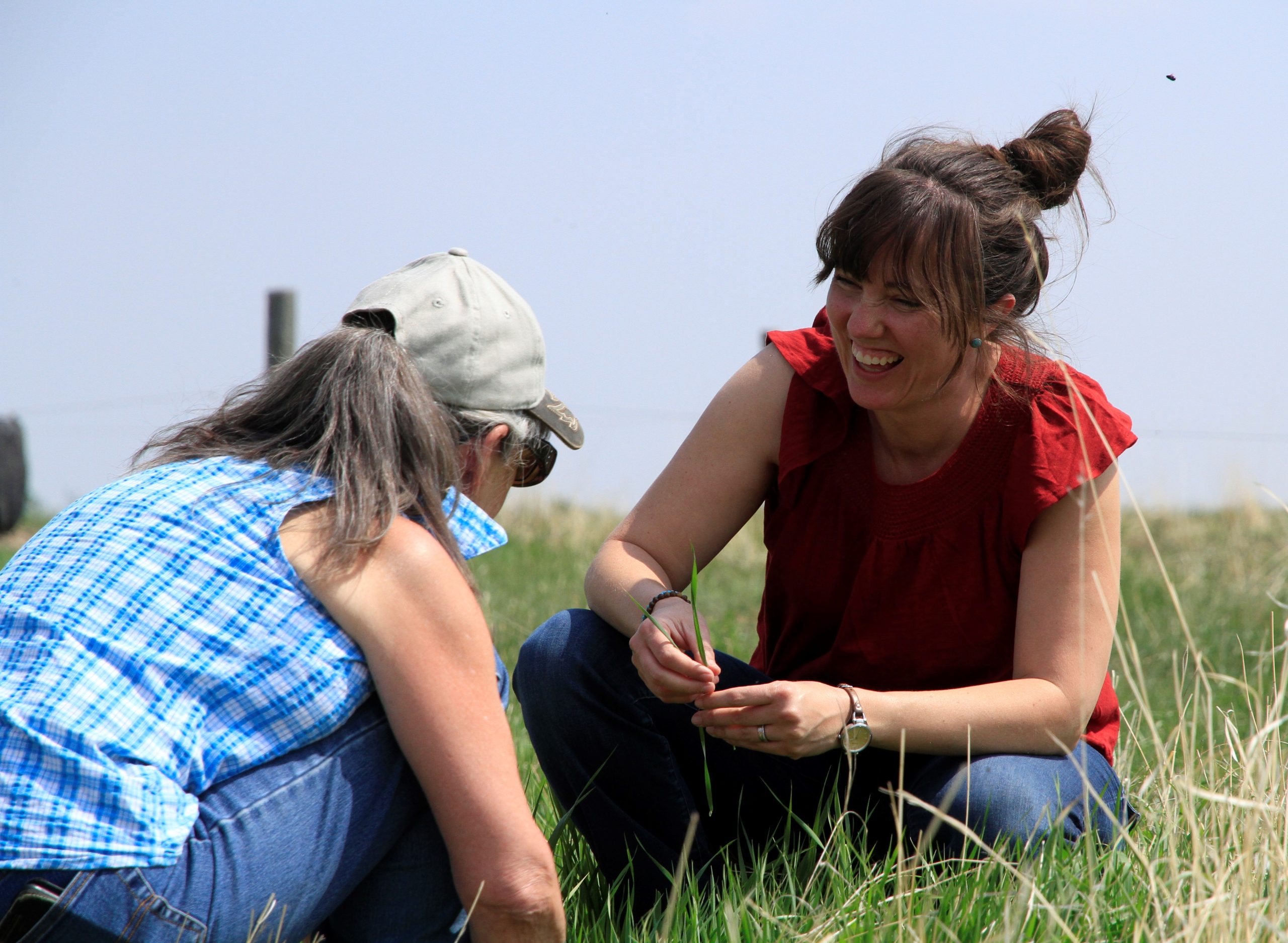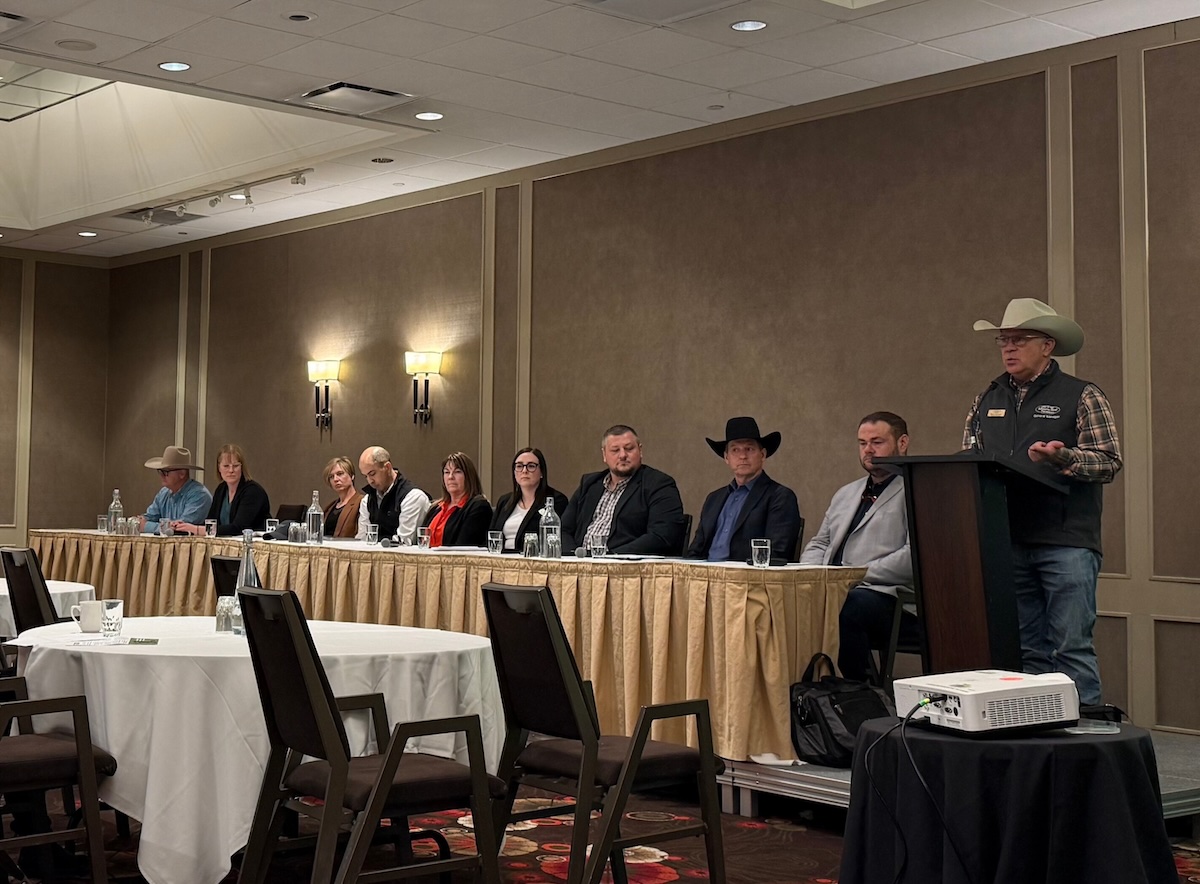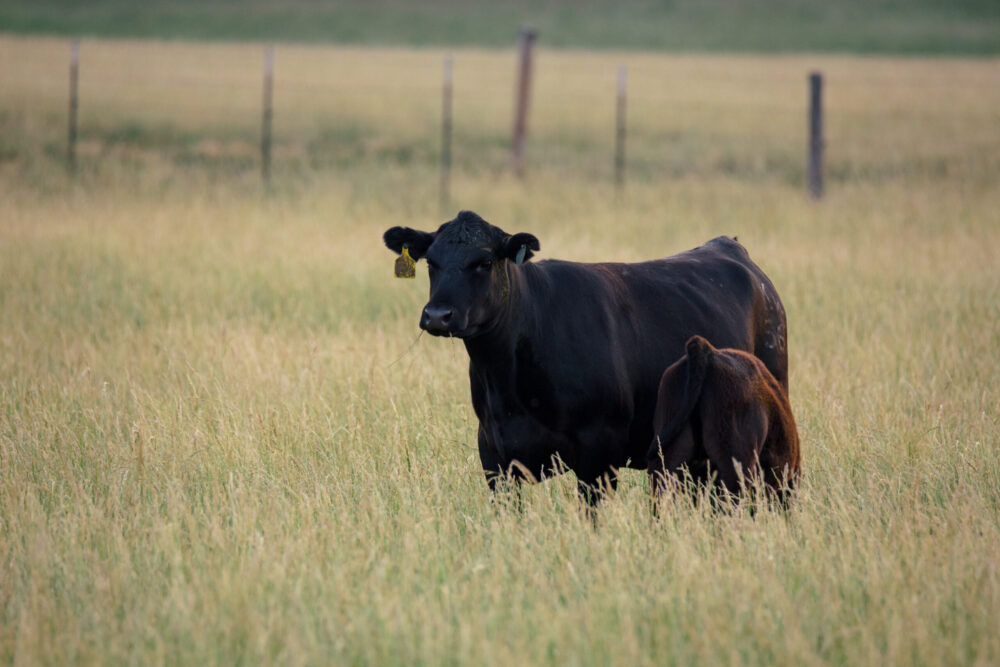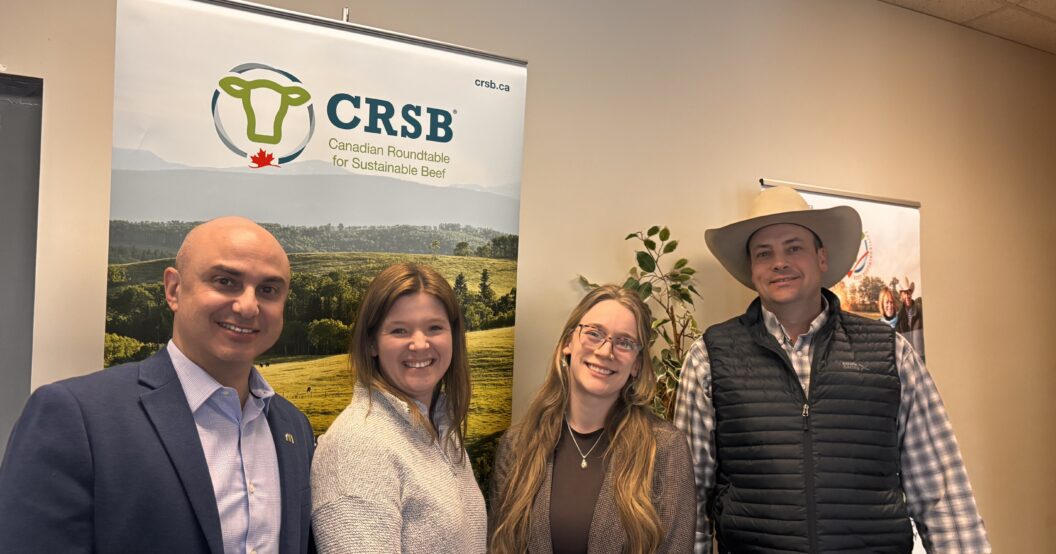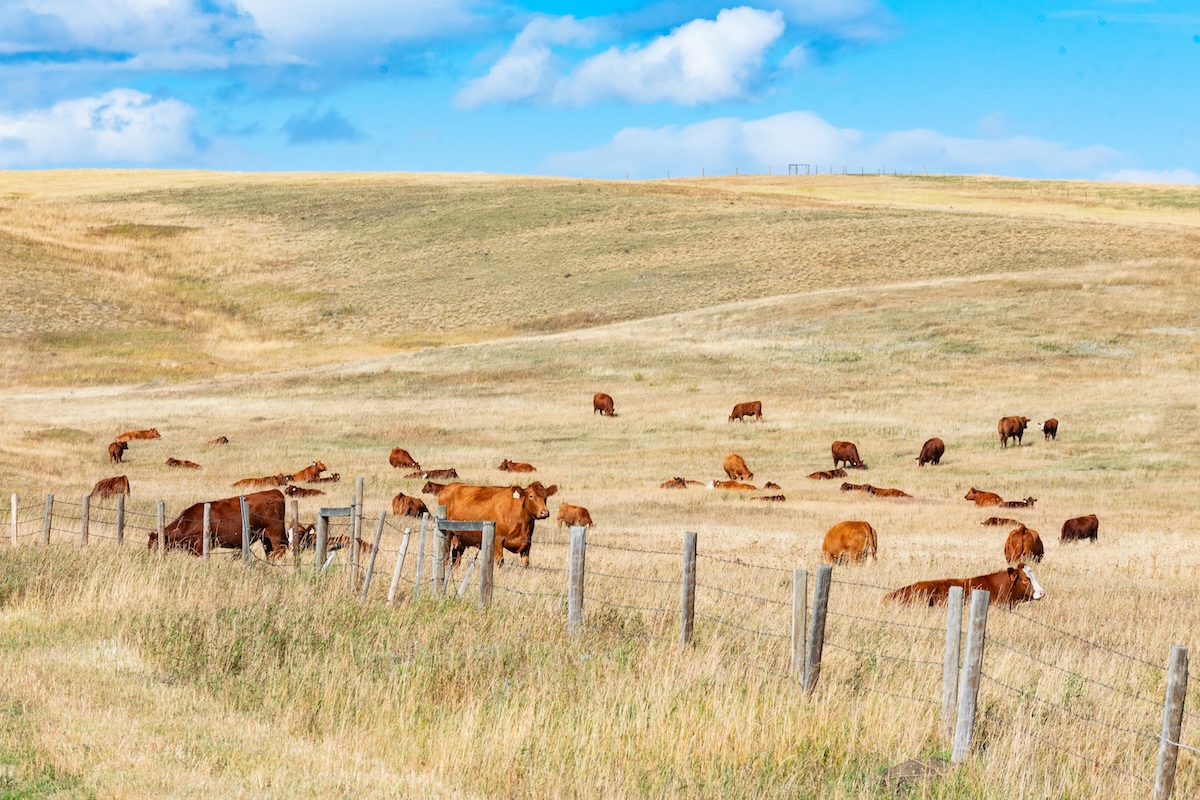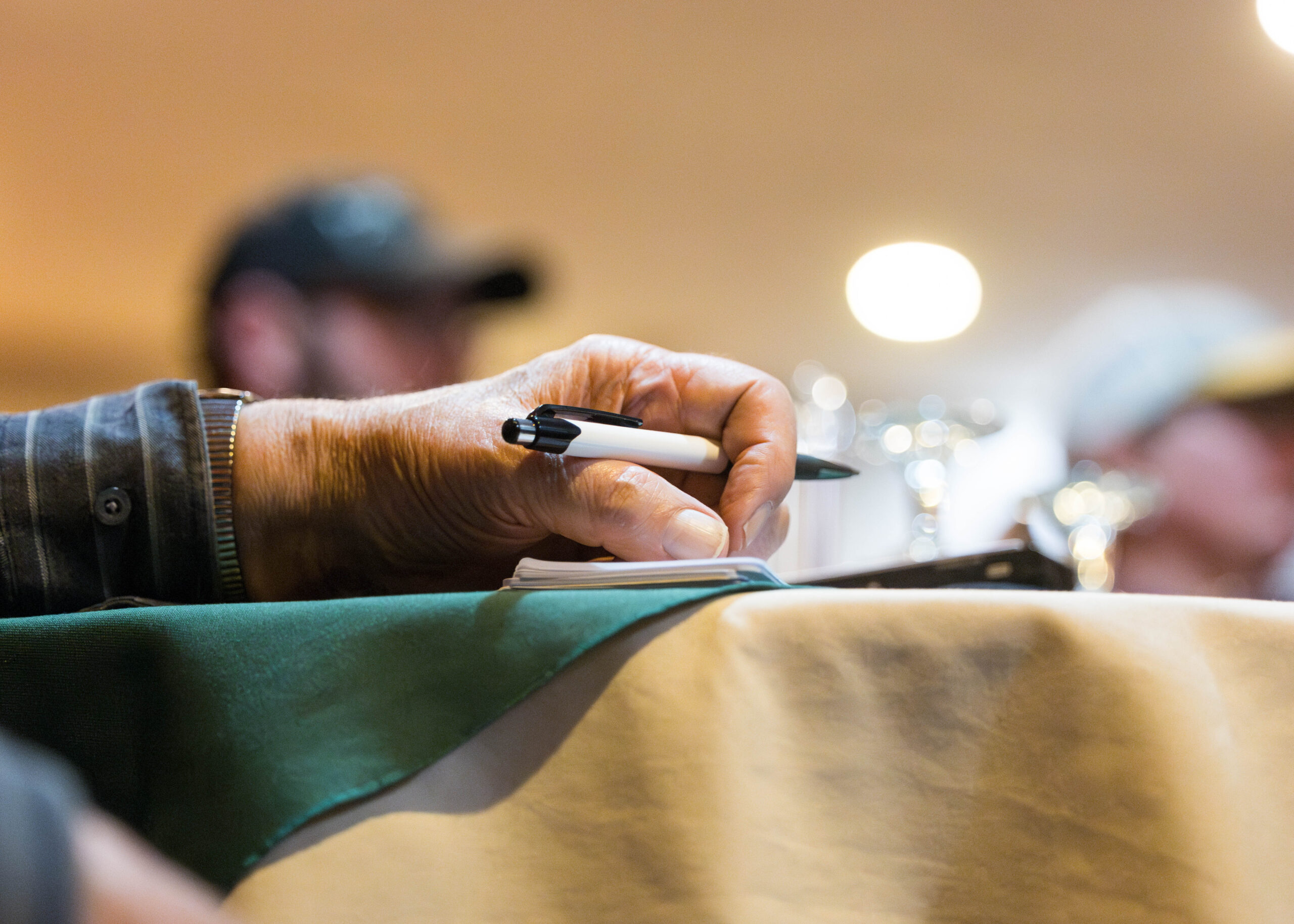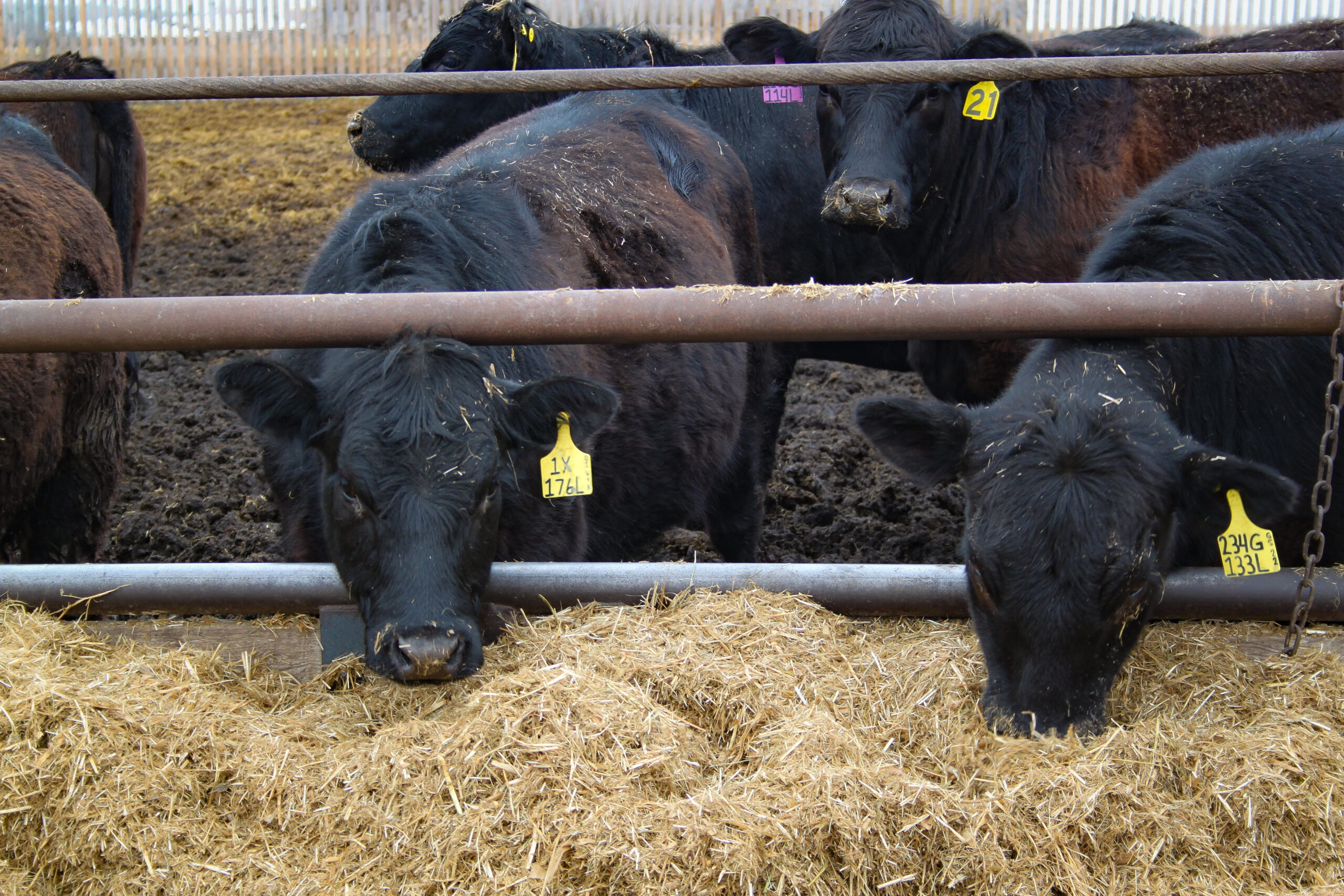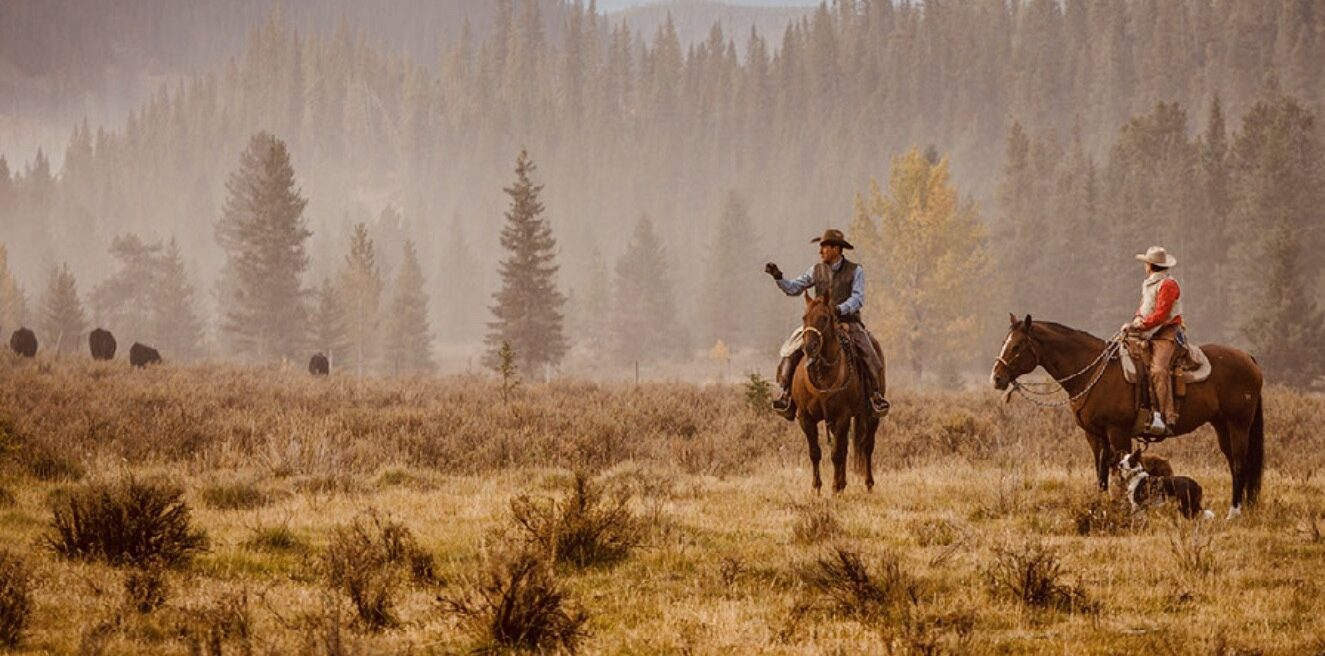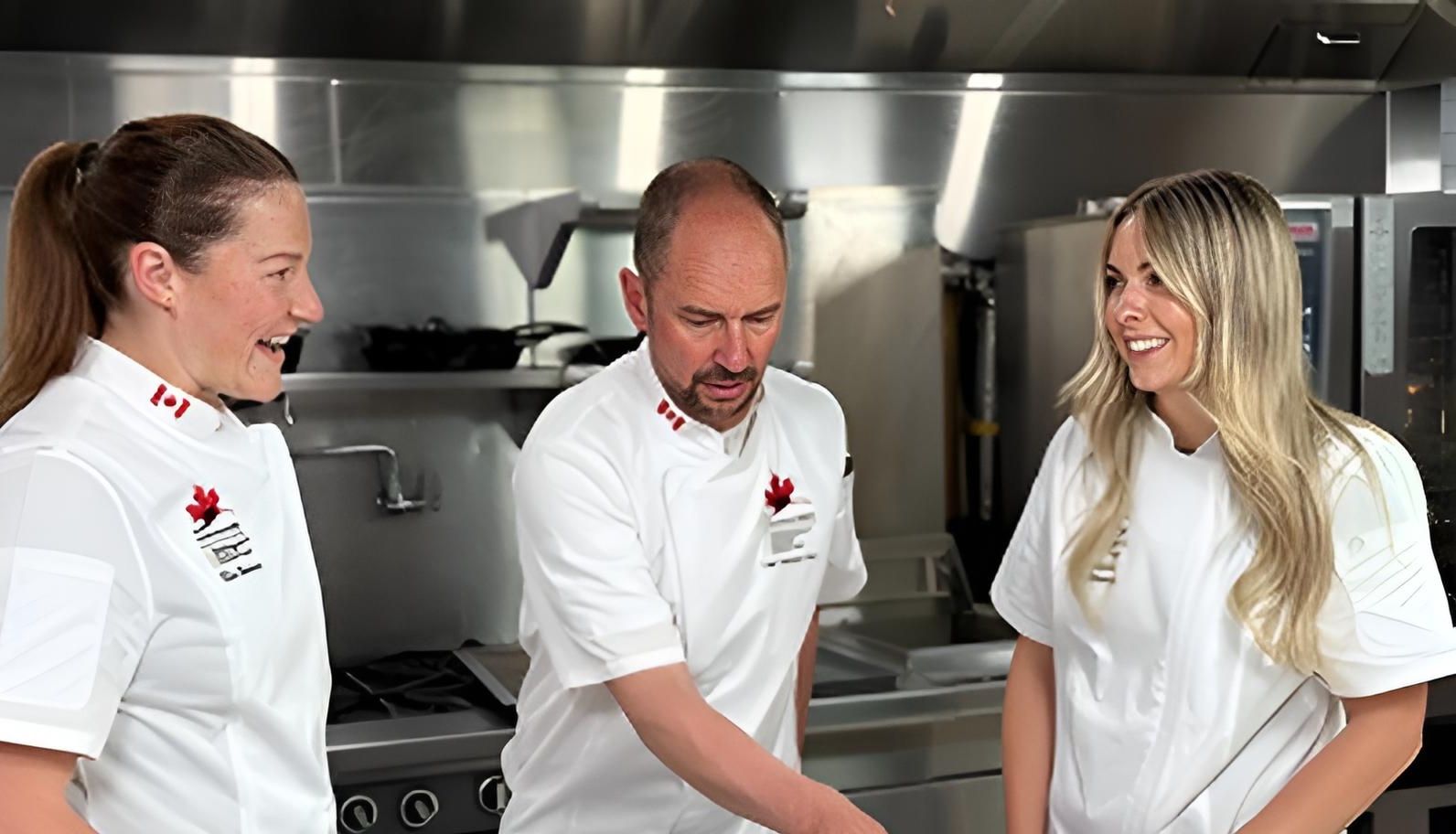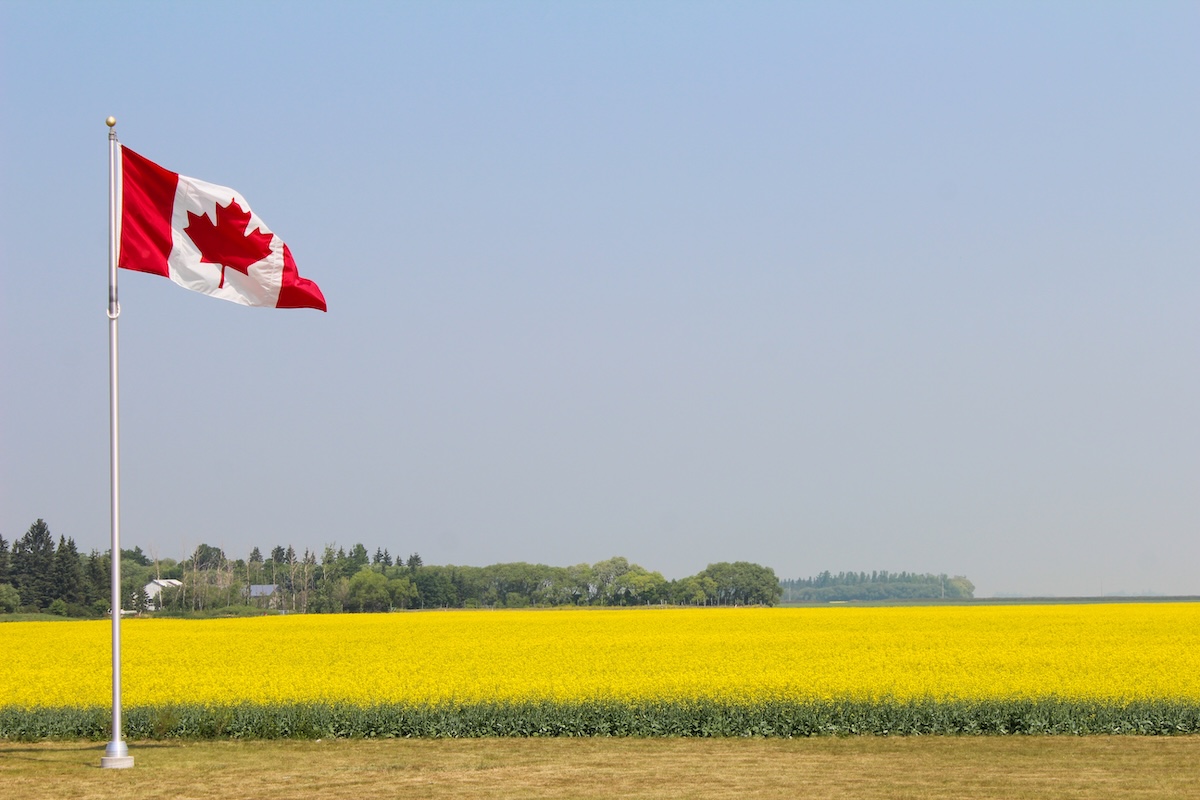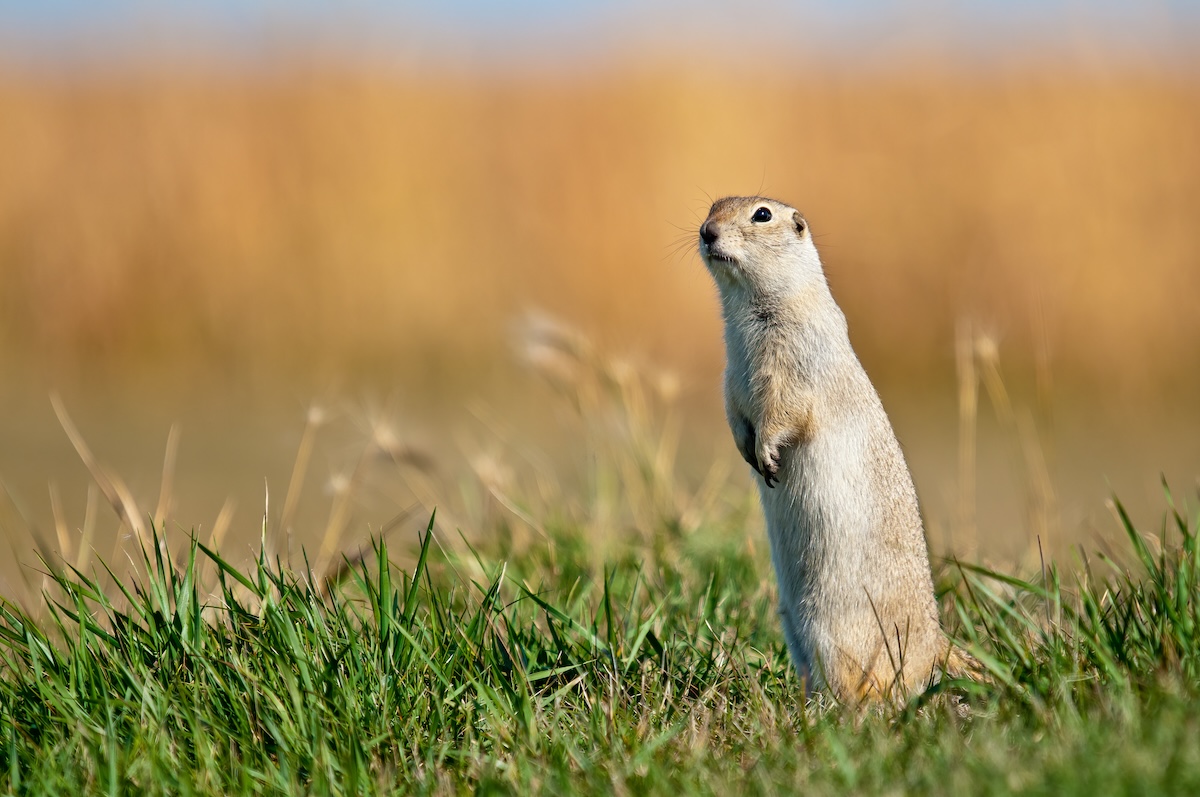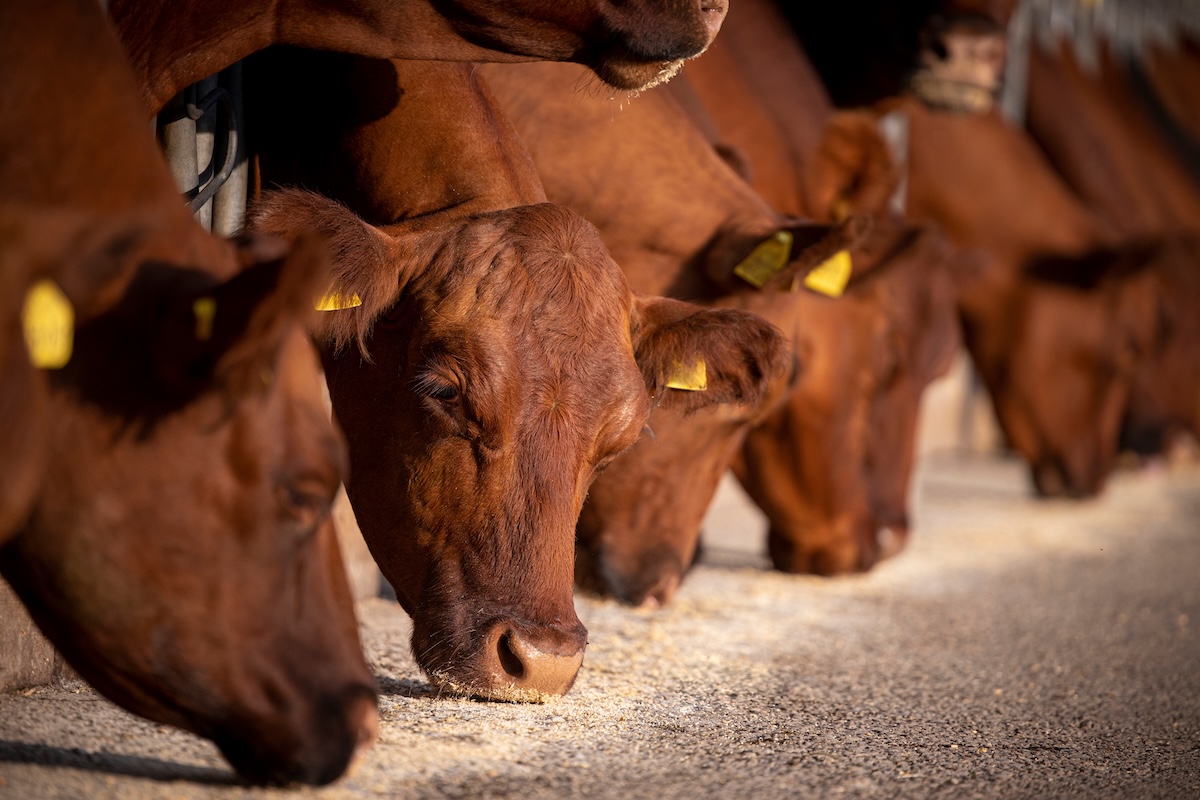AB Direct - Steers
Rail: ---
AB Direct - Heifers
Rail: ---
US Trade- Steers
Rail: ---
US Trade - Heifers
Rail: ---
Canadian Dollar
0.35
Alberta Beef Producers hosts Producer Town Hall on Traceability
Alberta Beef Producers (ABP) hosted a Producer Town Hall on Traceability on March 2, ahead of its Annual General Meeting, bringing together industry representatives and cattle producers to share perspectives on one of the most pressing issues currently facing the beef sector. “Traceability has become one of the most talked-about issues in the Canadian beef…
Alberta Beef Producers encouraged by AgriStability enhancements
Alberta Beef Producers (ABP) is encouraged to see further details following the 2025 announcement that some pasture costs will be included as an allowable expense beginning with the 2026 AgriStability program year. This change will help make AgriStability more responsive for cattle producers, particularly those who rely on rented pastureland, and better reflect the real…
Albertan becomes first CRSB youth councillor
Laura Buss, who grew up on a cow-calf operation north of Westlock, Alta., has been appointed as the first youth councillor to the Canadian Roundtable for Sustainable Beef (CRSB). Buss was selected through a nomination process coordinated with the Canadian Cattle Youth Council and will serve in an ex-officio (non-voting) role on the CRSB Council….
Why the International Year of Rangelands and Pastoralists matters to Alberta ranchers
Editor’s Note: 2026 is the International Year of Rangelands and Pastoralists, declared by the United Nations. This column by Dr. Barry Irving explores what that means for Alberta ranchers and why engagement matters. Watch for additional IYRP-related content in the months ahead. How the IYRP came to be The International Year of Rangelands and Pastoralists…
ABP to host dedicated traceability discussion
Alberta Beef Producers (ABP) is hosting a dedicated traceability session to give Alberta cattle producers additional time and space to share their perspectives. As ABP’s Annual General Meeting (AGM) follows a formal governance agenda, with strict time limits for input, ABP has scheduled this Producer Town Hall on Traceability to ensure there is dedicated time for open discussion preceding the AGM. This session builds on discussions already taking place across the…
Canfax Weekly Article | Report for the week of February 23, 2026
Alberta weighted average fed steers closed the week just north of $315/cwt, while heifers were at $313/cwt. Dressed sales were reported from $520–530/cwt delivered, $5–7/cwt stronger than the prior week. Cattle that traded were scheduled from immediate to the first half of March delivery. U.S. packer interest was noted, but no sales were confirmed. Cattle from Saskatchewan…
Great stewardship deserves recognition
Reminder that nominations for ABP’s Environmental Stewardship Award 2026 are now open! Plateau Cattle Co. was featured on Global News recently as part of Canada’s Agriculture Day celebrations. The operation, run by John Smith and Laura Laing, was Alberta Beef Producers (ABP) 2025 Environmental Stewardship Award (ESA) winner. Plateau’s story is a strong reminder of…
Olds College takes a reset year for AgSmart
Olds College of Agriculture & Technology is taking a reset year for AgSmart in 2026. The learning exposition is expected to return in 2027 with a renewed focus on applied research, technology and national collaboration across the agriculture sector. AgSmart has traditionally been a three-day event featuring expert speakers, live technology demonstrations, education sessions and…
Alberta farm roots shine in new partnership with women pro hockey stars
Canada Beef is partnering with two standout professional hockey players, and one of them brings deep Alberta agricultural roots to the table. Emerance Maschmeyer, goaltender for a team in Vancouver and a native of Bruderheim, Alberta, joins Ella Shelton, a professional women’s hockey player for a team in Ontario, as the newest faces of the Pick…
Consultations begin on next ag policy framework
Consultations are now underway on the next five-year agricultural policy framework, targeted for implementation in 2028. Formally named the Next Policy Framework (NPF) by the Government of Canada, the NPF is a federal-provincial-territorial agreement that will shape programs and supports for Canada’s agriculture sector starting in 2028. It will take over from the 2023-2028 Sustainable…
Strychnine option for gophers ruled out for 2026
Producers will not have access to strychnine for Richardson’s ground squirrel control in 2026, after Health Canada’s Pest Management Regulatory Agency (PMRA) denied a joint emergency use request from Alberta and Saskatchewan. The request was submitted in response to increasing ground squirrel populations and concerns about damage to pasture, hay land and crops. Producers and provincial officials argued that…
CCA launches survey on traceability
The Canadian Cattle Association (CCA) is hosting an online survey to gather producer feedback on the proposed amendments to Part XV (Traceability) of the Health of Animals Regulations, which are currently paused. Producers can complete the survey by clicking the CCA Producer Survey button below. The survey is based on the proposed regulations as they…


